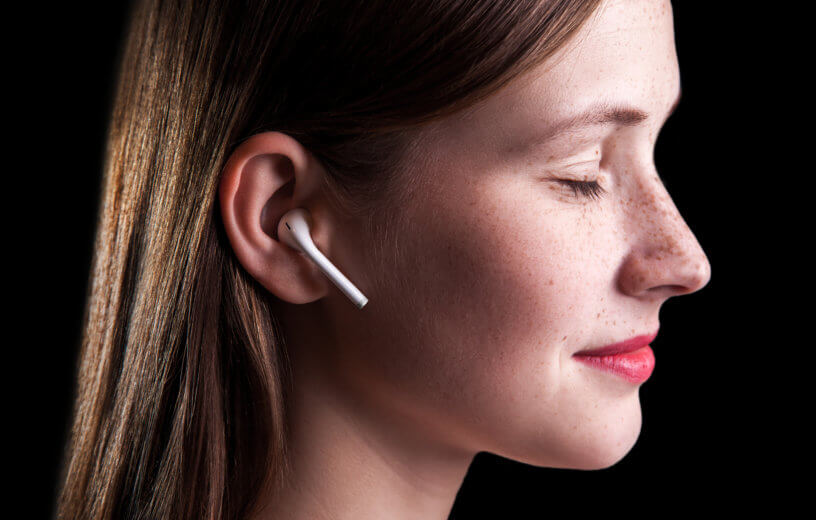NEW TAIPEI, Taiwan — Apple’s AirPods earbuds may be just the inexpensive hack someone looking for an affordable hearing aid is looking for. A new study finds that they have the capacity to positively impact several lives affected by hearing loss by increasing accessibility to sound amplification resources.
Though hearing loss is a common condition, estimates show that 75 percent of those with a hearing impairment in the United States don’t wear hearing aids. This may be largely due to the many barriers that prevent equitable access such as cost and the time it takes to make numerous audiologist and otolaryngologist appointments for tuning.
“There’s also a social stigma associated with hearing aids,” says Yen-fu Cheng, the study’s corresponding author and an otolaryngologist at Taipei Veterans General Hospital, in a media release. “Many patients are reluctant to wear them because they don’t want to appear old. So, we started exploring if there’re are more accessible alternatives.”
READ: Best Headphones, According To Experts
In 2016, Apple released a feature called “Live Listen” that allows people to use AirPods and iPhones for sound amplification purposes. The feature makes it possible for AirPods to function similarly to a personal sound amplification device that’s designed for those without hearing loss to engage in activities that require heightened hearing such as birdwatching. As such, Cheng and the team wanted to investigate whether wireless earphones can serve as alternative, and far more accessible hearing aids.
The researchers did this by comparing Airpods 2 and AirPods Pro, which is the latest generation that features noise-cancelling technology. They tested four devices with 21 participants with mild to moderate hearing loss. Researchers read a short sentence to participants, following up by asking them to repeat their words verbatim while wearing different devices.
They found AirPods Pro performed comparably to basic hearing aids in a quiet environment. They were only slightly less effective than premium hearing aids. The devices were also just shy of meeting all technology standards — meeting four out of five hearing aid benchmarks. Although AirPods 2 performed the poorest out of all the devices, they were beneficial compared to having no hearing aids at all.
READ: Best Tech Gifts For 2023: Top 10 Gadgets Recommended By Expert Websites
Even in a noisy environment, AirPods Pro performed similarly to premium hearing aids when the noises came from the side of the participant. The only time when both AirPods didn’t produce strong results was when noises came from the front.
“Two reasons may account for the difference between the two scenarios,” says Ying-Hui Lai, the study’s co-author and a bioengineer at National Yang Ming Chiao Tung University in Taipei. “It may relate to the trajectories soundwaves travel with, as well as the advanced signal processing algorithm by premium hearing aids. This finding will hopefully inspire engineers to design hearing aids and personal sound amplification products that are more sensitive in certain directions.”
Generally, AirPods 2 cost $129 and AirPods Pro cost $249. Compared to basic hearing aids that generally cost $1,500 at minimum and the premium ones costing $10,000, AirPods are a much more cost effective choice overall. Cheng mentions that, as a clinician, it’s hard to convince people to invest in hearing aids for various reasons. While AirPods won’t solve everything, they may be a good starting point for those unwilling to make the leap to professional aids right away.
The findings appear in the journal iScience.

